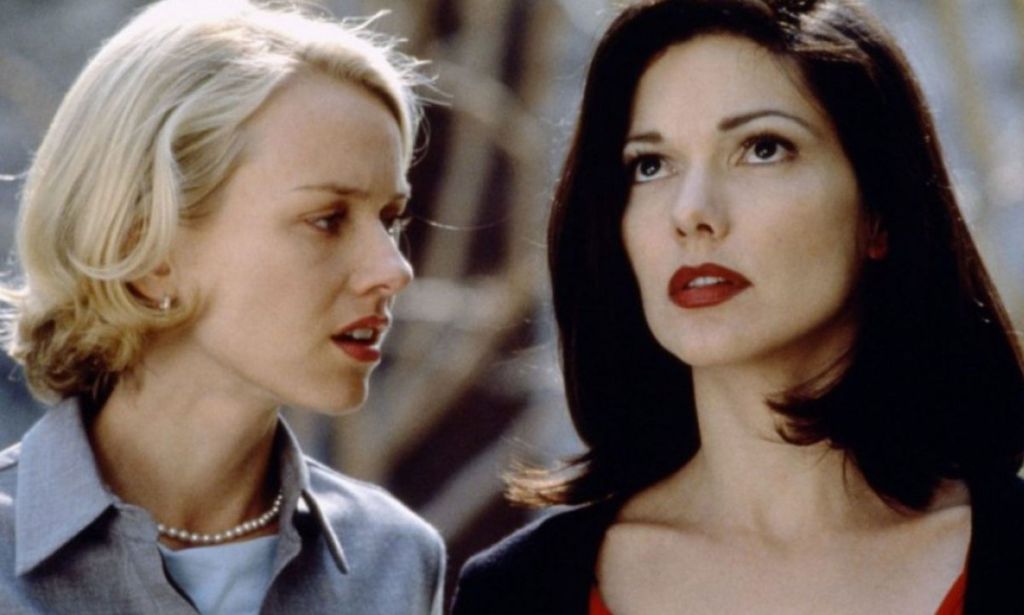David Lynch’s biggest contributions to queer cinema, from Mulholland Drive to Twin Peaks

David Lynch died on 16 January aged 78. (Getty)
The wonderful and strange universe of David Lynch was home not just to captivating stories, but authentic queer characters too.
The acclaimed director, actor, and musician, best known for his work on Twin Peaks, died on Thursday (16 January) at the age of 78.
“It is with deep regret that we, his family, announce the passing of the man and the artist, David Lynch,” a post on his Facebook page reads. “We would appreciate some privacy at this time. There’s a big hole in the world now that he’s no longer with us. But, as he would say, ‘Keep your eye on the donut and not on the hole.’ It is a beautiful day with golden sunshine and blue skies all the way.”

The filmmaker’s acclaimed filmography includes Criterion Collection classics like Blue Velvet, Mulholland Drive, Eraserhead, Inland Empire, and The Elephant Man.
He rose to prominence with the release of the award-winning surrealist murder mystery television series Twin Peaks, which he co-created with Mark Frost.
LGBTQ+ artists and creators have paid tribute to Lynch, including I Saw the TV Glow director Jane Schoenbrun, who said: “He was the first to show me another world, a beautiful one of love and danger I sensed but had never seen outside sleep,” adding: “Thank you, David, your gift will reverberate for the rest of my life.”
His projects featured a plethora of weird and wonderful LGBTQ+ characters who cemented his works as deeply, authentically queer, even if the filmmaker himself may not have been. Here are the highlights:
The iconic lesbian romance in Mulholland Drive
The 2001 surrealist thriller Mulholland Drive is among David Lynch’s most popular and most perplexing films. It follows Rita, an amnesiac who calls on Betty, an aspiring actress she meets following a car accident, to help her discover her identity.
Complete with the genuine and endearing quality that cements Lynch’s films as truly iconic, Rita and Betty’s relationship quickly becomes more than platonic as the two fall in love. Their intense relationship quickly descends into a supernatural, multiversal sequence of dream-like alternate realities, anchored only by their love for each other.

Thanks to its steamy romantic scenes and the perfectly-paced tension between its two leading characters, Mulholland Drive is considered to be one of the greatest queer films in modern cinema.
Speaking to Criterion in 2015, Lynch said the movie, which was originally pitched as a TV series, was one of his favourites.
“If someone said to you, ‘What was it about that girl that really made you fall in love with her?’ You couldn’t say just one thing. It’s so many things. It’s everything. Same with this.
“You get an idea. A moment before, it wasn’t there. And it comes SO FAST! And when you get the idea, it sometimes comes with an inspiration, an energy, that fires you up. Maybe the love is in the idea, and it just comes into you.”
The strikingly genuine trans detective Denise Bryson in Twin Peaks
There’s a touching scene in the 2017 Twin Peaks sequel Twin Peaks: The Return. David Lynch, returning as hard-of-hearing FBI deputy director Gordon Cole, speaks to former DEA agent turned FBI chief of staff Denise Bryson. In the scene, Cole, politely screaming as he always does, speaks frankly to Bryson.
“Before you were Denise, when you were Denis, and I was your boss, and I had you working undercover at the DEA, you were a confused and wild thing sometimes,” he says. “I had enough dirt on you to fill the Grand Canyon and I never used a spoonful because you were, and are, a great agent.
“And when you became Denise, I told all your colleagues, those clown comics, to fix their hearts or die.” This powerful line has since become a rallying cry for trans rights advocates.

Debuting in the less-than-stellar latter half of Twin Peaks’ second season, Denise Bryson is possibly one of the best things to come from the post-Laura Palmer world of the supernatural mystery TV series.
The story goes that Denise first realised she was trans after she wore feminine clothing during an undercover operation at the DEA which, in her own words, made her feel “comfortable.”
Joining special agent Dale Cooper in the titular town to help clear his name, Denise became hugely popular not least because of her unabashed confidence in who she is, but because her portrayal feels genuine.
While she isn’t perfect – certain jokes about her presentation are made at her expense – Lynch and fellow showrunner Mark Frost’s portrayal of a trans woman feels authentic, at least for pre-2000s media.
Denise Bryson, as a result, is one of the few things to return to the 2017 sequel from the controversial second half of Twin Peaks’ second season, which Lynch admitted he hates.
As well as openly LGBTQ+ characters like Rita, Betty and Denise, Lynch’s work was, of course, in many ways, inherently queer. He was a storyteller who highlighted the stories of outsiders, misfits and outcasts – and introduced themes of found family, loss and heartbreak that we can all relate to. His death is a huge loss.
How did this story make you feel?

